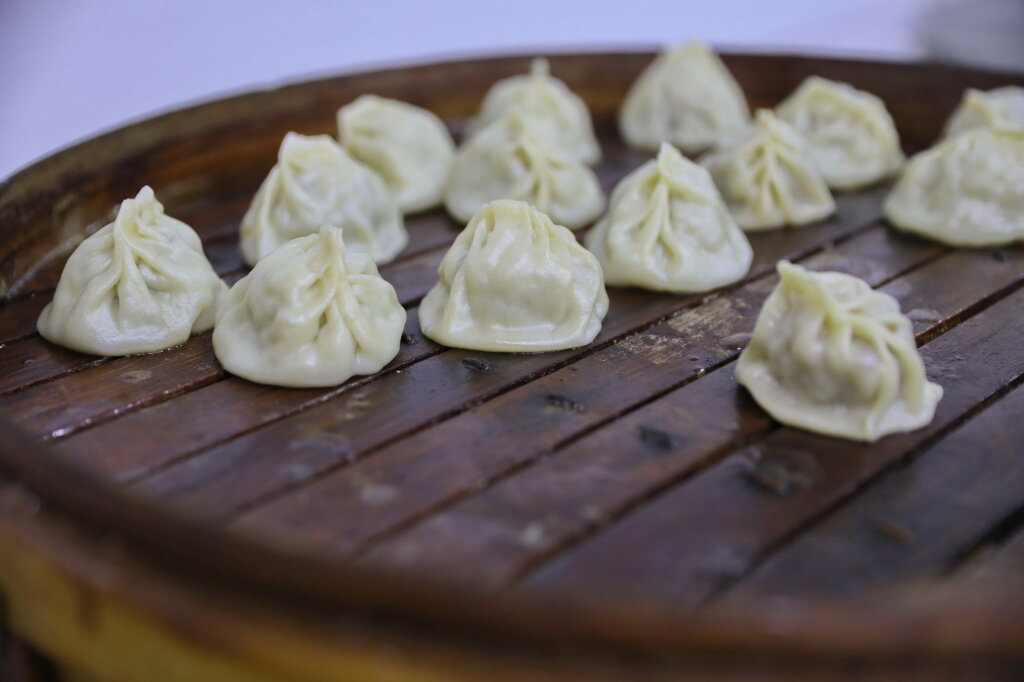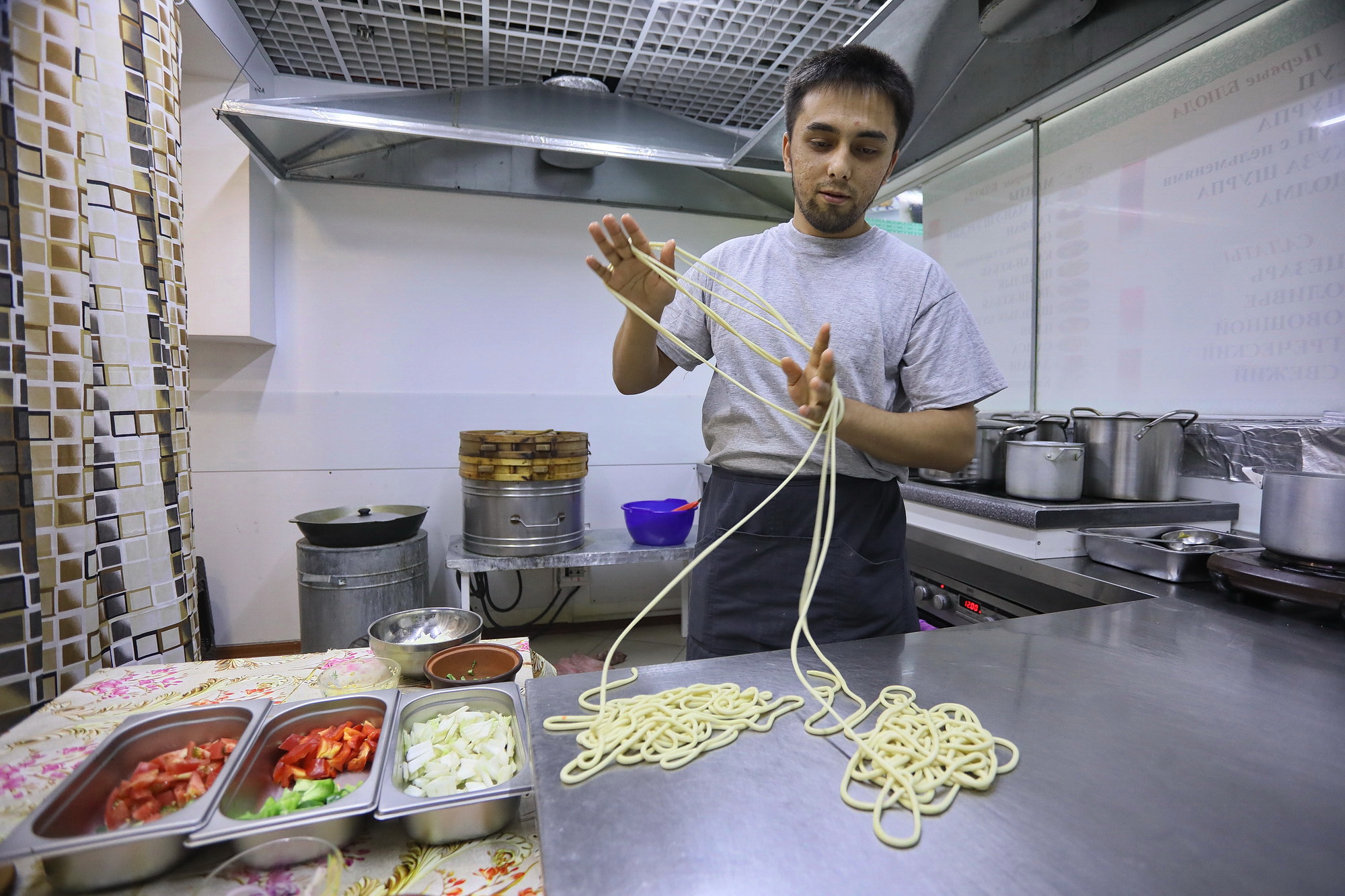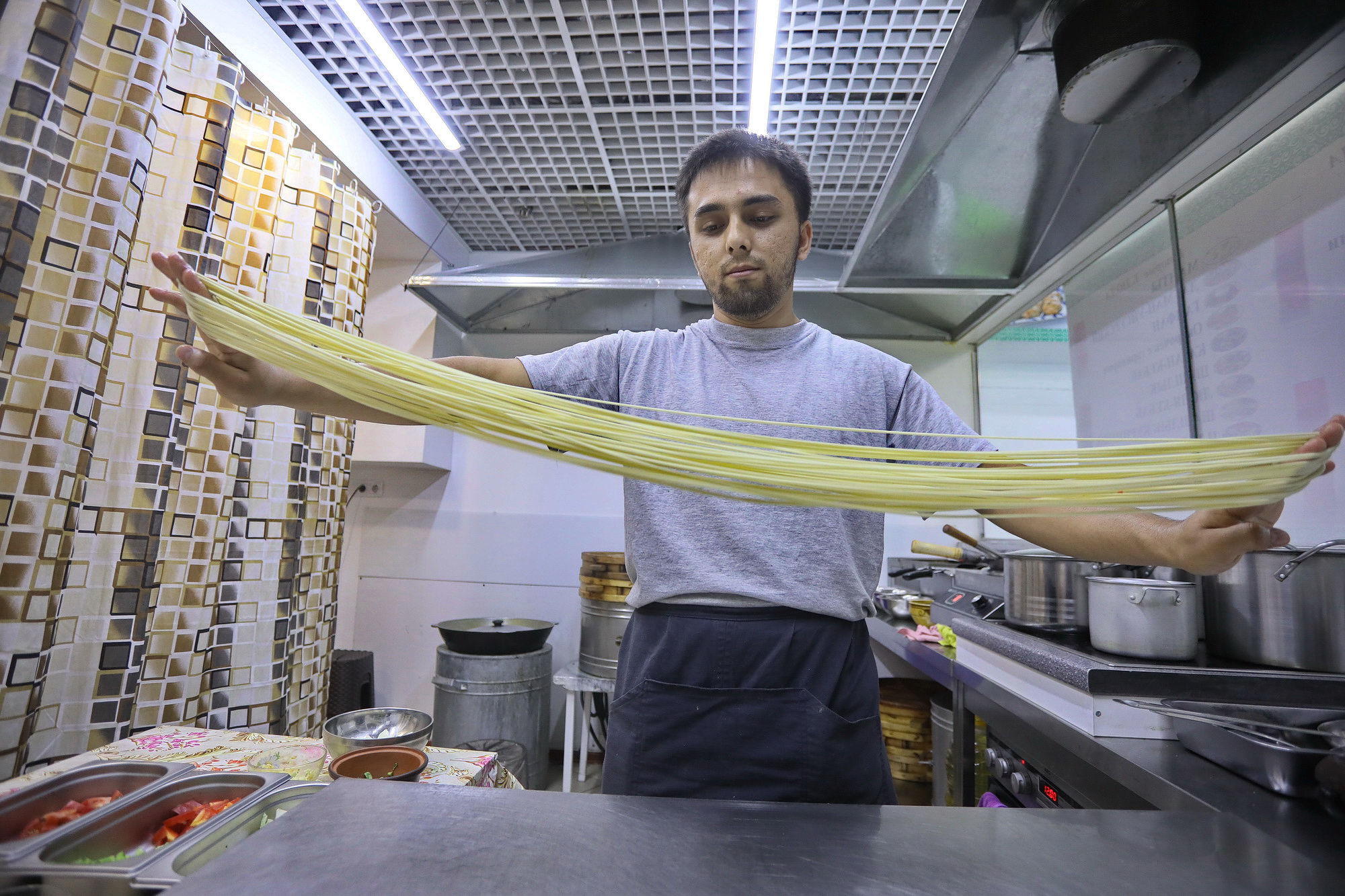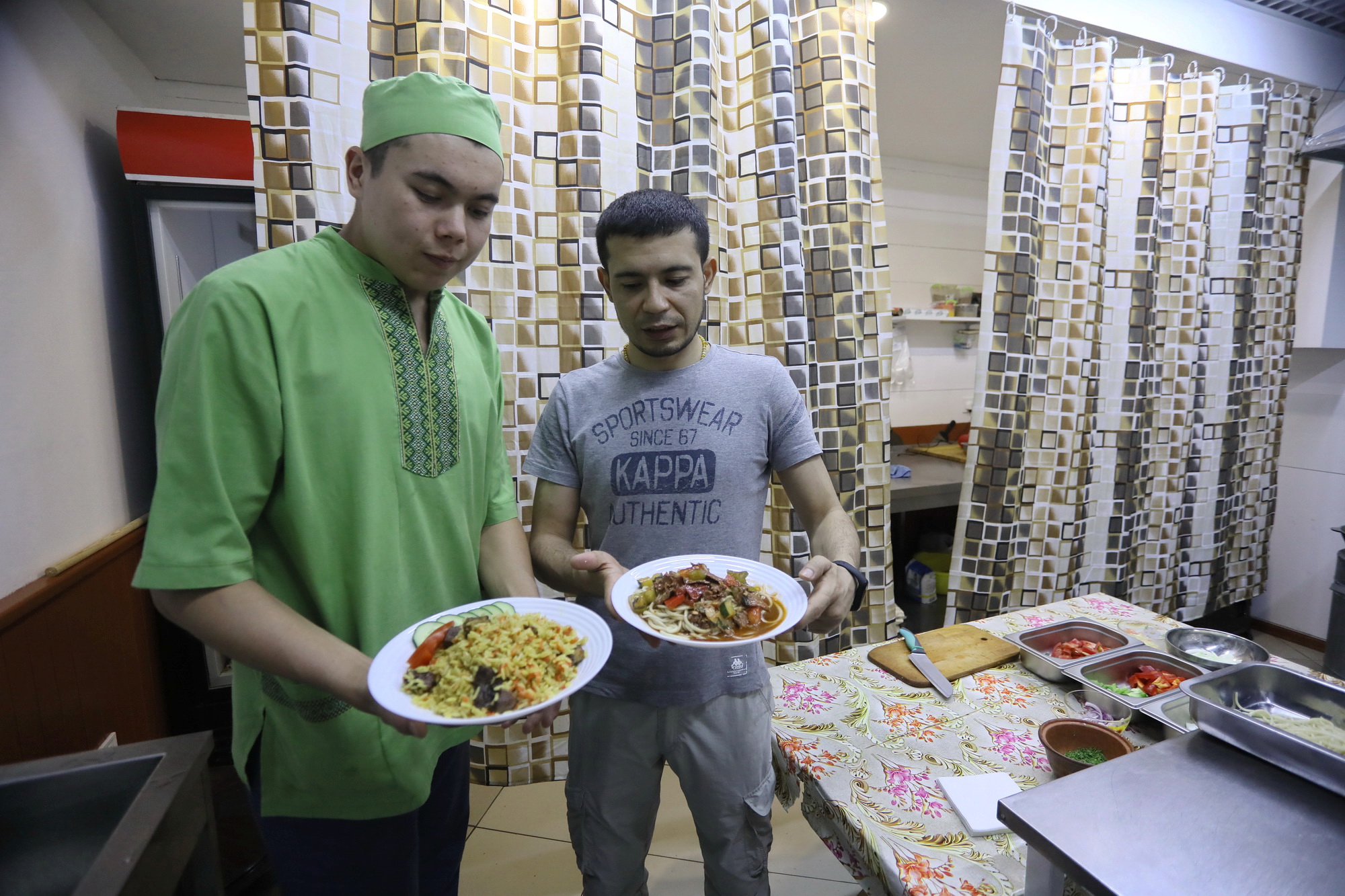Beneath Kyiv’s Bessarabsky Market lies Metrograd, an underground shopping mall where even city residents often find themselves lost in the labyrinth of passages. At its newly opened food court, an Uzbek refugee runs a small cafe that serves some of the most authentic dishes of Central Asia.
Don’t be dissuaded by the cafe’s generic name, Halal Food. The cafe offers dishes largely unheard of in Ukraine, such as gyuro lagman, the Uyghur variation of homemade noodles topped with veal and vegetables in sauce, and ganfan, white rice served with meat, vegetables, and a similar sauce.
Uyghurs are a Muslim minority who predominantly live in China’s western province of Xinjiang and in neighboring Kyrgyzstan, Kazakhstan, and Uzbekistan. Lately, Uyghurs have come under the international spotlight as the targets of China’s crackdown on Muslim minorities. According to the United Nations, over one million Uyghurs, Kazakhs, Kyrgyz, and Hui people have been detained in internment camps (the Chinese government calls them “re-education camps”) which are intended to counter alleged Islamic extremism.
The host and the manager of Halal Food, Farrukh Nurmatov, is half-Uyghur, and says he was forced to flee to Ukraine for criticizing the government in his home country of Uzbekistan.

Manti, Central Asian meat dumplings, rest on a tray at Halal Food, an Uzbek-Uyghur cafe opened by a political refugee from Uzbekistan. (Photo by Oleg Petrasiuk)
Persecution
Fourteen years ago, Nurmatov, then in his early 20s, did what many of his fellow countrymen do in pursuit of better earnings: He left his hometown in eastern Uzbekistan for Moscow.
Throughout a decade of living in the Russian capital, he owned a cafe and an advertising agency. But he was also an outspoken critic of Islam Karimov, the iron-fisted dictator who ruled Uzbekistan from independence until his death in September 2016.
Nurmatov says his criticism of the Uzbek authorities led to them placing him on an international wanted list. He was accused of involvement in religious and extremist groups banned by Uzbek law.
In 2016, he was arrested in Moscow and held in a detention center for eight months waiting to be deported to Uzbekistan. He says he was beaten in jail.
Initially, a Moscow court upheld his extradition. However, later the Russian Supreme Court overturned the ruling — a rare outcome in such cases — stating that Nurmatov faced a high risk of torture if extradited to Uzbekistan and that his prosecution was politically motivated.
After his release from jail, he no longer felt safe in Moscow. In the meantime, Uzbekistan got a new leader, Shavkat Mirziyoyev, who has been praised for carrying out some democratic reforms. But Nurmatov says the living standards for ordinary Uzbeks are still very low. Although the last time he visited his home country was ten years ago, he still has family there and keeps strong ties with Uzbek opposition members.
“Today, my main criticism is aimed at Russia,” he told the Kyiv Post. “In Central Asia, the ruling and policies come from Russia. All countries (in the region) are very dependent on Russia. This is our problem. As long as (Russian President Vladimir) Putin is in power, nothing good will happen in our countries.”
Ultimately, Nurmatov came to Ukraine illegally — the only way he possibly could, he said.
Here he applied for refugee status through the UNHCR, the United Nations refugee agency. His case has been under review for nearly 1.5 years by Ukraine’s State Migration Service.
New chapter
During his detention and move to Ukraine, Nurmatov lost his business in Moscow. He didn’t want to waste his time in Kyiv while waiting for his asylum application to be approved.
Unfortunately, his first attempt at starting a shawarma business failed, due to intense competition in the neighborhood where he worked.
Luckily for him, the UNHCR was giving out grants to refugee entrepreneurs. So Nurmatov pitched his business plan and won Hr 70,000 (roughly $2,600).
This was enough to buy shawarma making equipment for his new cafe, Halal Food. He even sold his last property, a car, in Moscow and invested the money into a new cafe.
Halal Food opened three months ago. It employs a total of 4 people, including Nurmatov himself.
“I don’t have a passport at the moment. I’m like a bum,” Nurmatov says. “If I got (refugee) status and a passport, I could develop my business.”
In fact, he is already thinking about developing the business. Halal Food specializes in its delicious gyuro lagman. The chefs make the noodles from scratch in the kitchen, pulling them into long, circular strings.
Halal Food also offers other mouthwatering dishes like beef kebabs called shashlyk, meat dumplings called manti, and traditional soups like shurpa — and all at “democratic” prices. Ukrainians will also find the familiar plov on the menu, the most famous Uzbek rice-and-meat dish.
But the restaurant is struggling. As a result, Nurmatov plans to also offer burgers, shawarma, and Slavic crepes, known as bliny, to satisfy Kyiv’s great hunger for fast food.
He also would like to better advertise the cafe, attracting both religious Muslims who seek food prepared in line with Islamic dietary restrictions known as halal and ordinary Ukrainians looking for a delicious lunch in a convenient location.
But Nurmatov’s top priority, for now, is to stay in Ukraine.
“I love Ukraine. I call it my second home. In my hard situation, they took care of me, are reviewing my application for asylum, gave me free healthcare. I breathe freely and sleep well. There are freedom and democracy here. In Russia, I was detained, beaten, and tortured. They wanted to extradite me.”



